Intentional Award
For great ideas and projects up to 1 year old.
This prize is for individuals, communities, aspiring businesses or newly formed groups and organisations to help establish a strong foundation from which to grow.
Knowledge sharing, training and strategy development are ways in which we would hope for this money to be used. We are also open to other suggestions if they will help make an idea a reality.
There are at least four prizes in this category, with each being awarded up to £10,000. We aim to award one prize to a small scale project in this category.
Prize Recipients for 2025
The Awards went to four projects, sharing a prize fund of £40,000.
Below are the recipients and other short-listed projects.
Award Recipient
Agro-Pueblos
Indigenous association for the governance of the first people, Agro-Pueblos is developing the JAJAÑ project in the Sibundoy Valley, Southern Colombia, to holistically strengthen a local system of food production that in turn builds community resilience. The values guiding this work align with the cosmology of the Kamëntšá indigenous people located in the region.
The project will assemble a community nursery for the production of seeds and grains of food and medicinal species, which will then be distributed to the wider community. 120 families will be directly involved and it is hoped that the nursery will be able to reproduce around 12 food species and eight medicinal varieties with the aim that in four years time the entire community, made up of 1,267 families, will benefit from the project and the 24,000 plants distributed and planted; bringing about productive sustainability in the face of climate change.
Alongside raising access to food and medicinal species, the project seeks to support dynamic participation and knowledge exchange associated with the land and to nurture a spiritual bond with nature.
The JAJAÑ space will allow for JENABUATAMBAN (mutual teaching through mutual help in work), which in turn allows for social cohesion, and builds the structural importance of JAJAÑ for the permanence of the community.
- Community, Food, Health
- 2025
- Intentional Projects
Project information
- Spanish
- Carrera 69A 95-75 Bogotá Cundinamarca 111131 Colombia
Award Recipient
Natiora Defenders
Natiora Defenders is the first organisation in Madagascar dedicated to recognising and promoting Madagascar’s environment and conservation heroes.
While regenerative work is essential, the people who are relentlessly working to restore the health of natural resources and the economy are just as important, given the success they have achieved so far despite numerous challenges.
In Madagascar, small-scale fisher communities face various challenges, including environmental degradation, the decline of fish populations and illegal fishing practices, leading to social and economic hardship of fisher communities. Small-scale fishers and their families also face various threats from environment offenders including violent intimidation, legal harassment and their homes set and fires. Many have faced life-threatening situations while protecting marine environments. This is made worse by the fact that small-scale fishing communities are also often located in remote areas, making it harder for their voices to be heard. The struggles they are facing and the tremendous work they are doing to overcome them often end up being overlooked.
This situation has led to Natiora Defenders creating the Ocean Defenders programme to recognise this invaluable work.
Natiora Defenders have selected 10 ocean conservation heroes through a pre-established scoring grid generated by partners from civil society and non-profit representatives alongside board members of Natiora Defenders. The programme plans to expand these heroes’ recognition and visibility to potential partners and funders, from local to international levels, and to strengthen the technical capacities of local ocean defenders through training and exchange of experiences. This in turn will regenerate the economy through improved management and conservation of marine resources, which will foster production and trade.
- Community, Ecosystems, Water
- 2025
- Intentional Projects
Project information
- Malagasy, French and English
- https://natioradefenders.org/
- https://www.facebook.com/natioradefenders
- https://x.com/Natioradefenders
- contact@natioradefenders.org
Award Recipient
Tender Shoots
The Tender Shoots organisation seeks to develop a youth-led environmental education and action network in Ywangan Township, Southern Shan State, Myanmar.
The Indigenous people of Ywangan Township once lived in a culturally and environmentally diverse region but the current situation is quite the opposite due to the irresponsible exploitation of resources and poor understanding of environmental conservation. While the region has experienced economic development, internal tensions prevent its communities from acting in a unified manner, leading to environmental degradation and the erosion of local biological diversity.
Tender Shoots seeks to shift this current situation by empowering and educating indigenous youth around:
- Climate change
- Sustainable development
- Gender
- Approaches to building a movement around responsible environmental and social practices.
It will work with schools, youth organisations, and other community-based organisations and individuals. Education by teachers and environmentalists will facilitate youth-led projects such as tree planting, and waste management, leading to responsible and sustainable communities over the coming years.
Through this work Tender Shoots seeks to revive the indigenous systems and knowledge that has formed the basis of Ywangan’s sustenance for decades; preparing young, dynamic and authoritative leaders.
- Community, Ecosystems, Landscapes, Networks
- 2025
- Intentional Projects
Project information
- Burmese and English
- No 1001, U Paw Oo Street, 16 District, Shwe Pauk Kan Township U Paw Oo Street Yangon 11031 Myanmar
Award Recipient
Ubuntu Learning Hub Trust
Ubuntu Learning Hub Trust was set up in 2022 with a mission to support people who are in transition towards more resilient futures and a healthier planet.
The Trust immediately began to set up the Ubuntu Learning Centre as an open learning space for all ages as well as a demonstration centre for integrating technologies that are in tune with a healthy Mother Earth.
The learning centre sits on a 2-hectare site in Chikancila village in Chongwe district of Lusaka Province of Zambia. It is founded on the African philosophy of Ubuntu which helps people to learn what it means to be truly human. It hosts people from all walks of life who are looking for pathways to escape the rat race and curve more sustainable futures for themselves, their families and the communities where they come from.
The Trust uses agro-ecological practices to regenerate the degraded farmland that was damaged over decades of poor land husbandry. For example, the Farmer Managed Natural Regeneration (FMNR) technique has helped to restore much of the indigenous vegetation on the land.
People come to Ubuntu to explore the meaning of life and to find their life purpose. They stay at Ubuntu for varying lengths of time and in the process they are engaged in intercultural exchanges as well as learning how to take care of themselves and of Mother Earth. The Trust offers life changing experiences rather than certificates and the opportunity to carve out an earth-centred worldview for themselves.
- Community, Food, Landscapes
- 2025
- Intentional Projects
Project information
- English
- https://www.facebook.com/ubuntulearninghub/
- Chikancila Village Chinkuli Area Lusaka Province 10101/310241 Zambia
Auletta Casa Mia
The Auletta Casa Mia project was founded in 2024 by young residents from marginalised areas in the province of Salerno, Southern Italy.
This region has faced numerous cases of toxic waste trafficking (whereby hazardous waste is falsely said to be non-hazardous and is then dumped in the region) and related legal proceedings, and is currently under threat from speculative projects that aim to exploit its pristine lands with extractive gas operations.
In response to these threats, Auletta Casa Mia was established to protect common goods: soil, air, water and biodiversity through processes inspired by mutualism and active citizenship. The project’s committee employs participatory and assembly-based methods with a transfeminist and ecological approach. This has so far included organising:
- Public assemblies, protests, community meetings.
- Regeneration projects such as a community garden.
- Popular theatre, community cinema.
- Recycling-reuse-exchange workshops.
- Ecological walks to clean the town.
Within six months, Auletta Casa Mia had successfully halted a proposed mega gas and methane plant, triggered an anti-mafia investigation, and catalysed involvement from over 25 youths under 18 who now participate in and organise various local activities.
Auletta Casa Mia seeks to continue this regenerative journey, believing that the region’s underpopulated areas, surrounded by centuries-old olive trees, can become places to sow the seeds for new forms of civil economy based on agroecology, permaculture, and holistic practices that integrate art, culture, and ecology.
- Community, Ecosystems, Energy, Landscapes
- 2025
- Intentional Projects
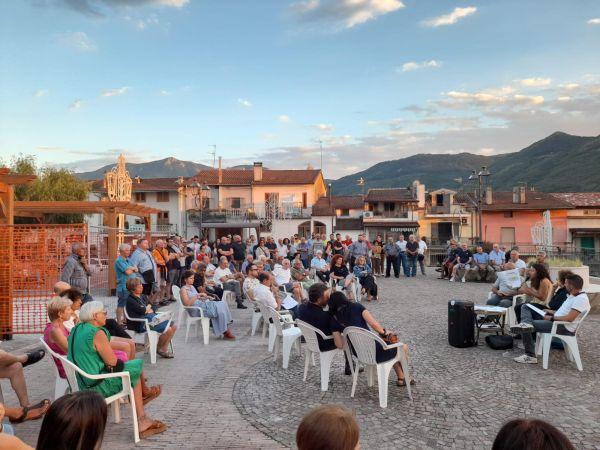
Project information
- Italian
- https://www.instagram.com/auletta_casa_mia/
- https://www.facebook.com/p/Auletta-Casa-Mia-61550731416071/
- Via Principi di Piemonte SNC Auletta Campania 84031 Italy
Hub de Negócios Regenerativos
Hub de Negócios Regenerativos (The Regenerative Business Hub) was born out of learnings from various experiments that tested new forms of organisational and collaborative functioning, where companies support each other, as in living systems. This brought an ecosystem of entrepreneurs together for the purpose of collaborating with each other to take care of life by awakening a new awareness of entrepreneurship.
The Regenerative Business Hub is an ecosystem of deep collaboration between individuals and ventures working for planetary regeneration. The purpose is to connect regenerative minds and hearts to maximise the power of action and transformation. It adopts Holacratic Governance to ensure fluid and participatory management, 4D Fluxonomy (an analysis methodology) to map resources and revenues for regenerative finance. The group also works with the Inner Development Goals (IDGs) as cross-cutting elements in all its projects. It works on several fronts, including learning, integral health, consultancy, co-creation, new economies, deep ecology, city transition, network strengthening and regenerative design of territories.
The Regenerative Business Hub is made up of 24 entrepreneurs who are diverse in terms of gender, sexual orientation and age. It organizes as a living organism, and in five years’ time, its aim is to be co-creating and co-implementing initiatives that will support many organizations in their adaptive and regenerative processes, making a significant contribution to a more harmonious and sustainable future.
- Community, Ecosystems, Networks
- 2025
- Intentional Projects
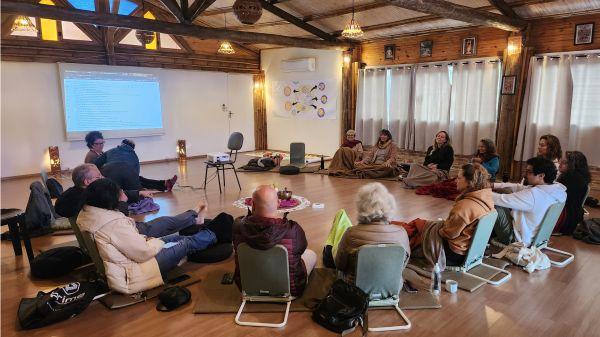
Project information
- Portuguese
- https://www.socialcontemporaneo.com.br/laboratsrios
- hubnegociosregenerativos@gmail.com
- Rua general Glicerio 74/ 403 - Laranjeiras Rio de Janeiro RJ 22245-120 Brazil
Mawija
The words WIJA and MA mean seed activity in Balinese Sanskrit and, true to the project’s name, all of Mawija’s programmes aim to plant seeds of change and hope in people’s minds, hearts and bellies through regenerative farming, community action and food.
Mawija seeks to build a collaborative movement that makes young and old Balinese people proud through the continuation of intergenerational knowledge, starting with regenerative farming, and including permaculture and biodynamic farming, and nutrient-dense local recipes.
It brings people together around food in the following ways:
- Cooking classes: bringing mothers, chefs, and farmers together.
- Foraging classes: bringing farmers, chefs, tourists, and other attendees together.
- Food production and farming: including seed swapping, practical and theoretical training and organic composting.
Mawija also seeks to build an accessible community space, which would be used for:
- Knowledge sharing.
- Teaching permaculture and biodynamic farming practices.
- Local ingredient processing.
- Sharing traditional recipes.
- Connecting local farmers directly with local restaurants.
In five years time, Mawija hopes to realise this community education centre in Tabanan, Bali; enabling farmers, locals, tourists, business owners, school children and families to have equal access to support, where forgotten ingredients are revived, the land healed.
- Community, Food
- 2025
- Intentional Projects
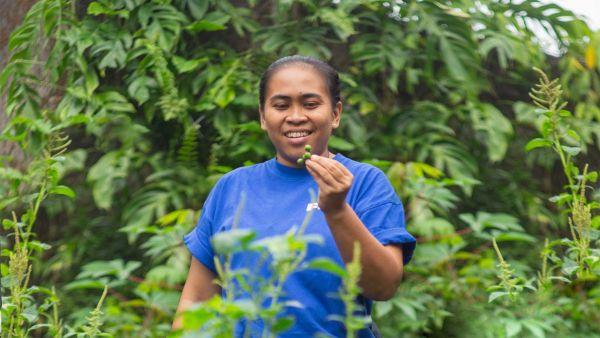
Project information
- Indonesian
- madeinamed@gmail.com
- Banjar Bengkel, Wongaya Gede, Kecamatan Penebel Tabanan Bali 82152 Indonesia
Pró-Onça Institute
The Pró-Onça Institute is based in the Cerrado biome in Brazil, an area that is home to a significant population of jaguars and unique ecosystems.
This region faces threats of habitat loss due to deforestation, agricultural expansion, poaching and increasingly drier and hotter years due to climate change, threatening both wildlife and local communities that depend on natural resources. The Pró-Onça Institute addresses these challenges through a holistic approach that integrates ecological restoration with community engagement, emphasising jaguar conservation, habitat restoration, and the empowerment of women in conservation science.
Local women are trained as researchers and ecotourism guides, empowering them to conserve jaguars and biodiversity while creating sustainable income opportunities through responsible ecotourism. By developing workshops in conservation techniques, biodiversity monitoring in the field, and restoration activities, the Pró-Onça Institute is also ensuring that the voices of local women are central to decision-making processes.
The Pró-Onça Institute dreams of:
- A network of women that lead conservation initiatives and actively engage with local and global audiences.
- The jaguar population showing signs of recovery, with restored habitats and healthier ecosystems.
- Communities shifting towards sustainable economic practices through ecotourism, demonstrating a model where conservation and community well-being coexist harmoniously.
- Knowledge sharing from this project inspiring similar initiatives globally, further cultivating a robust regenerative movement in conservation.
- Community, Ecosystems, Landscapes
- 2025
- Intentional Projects
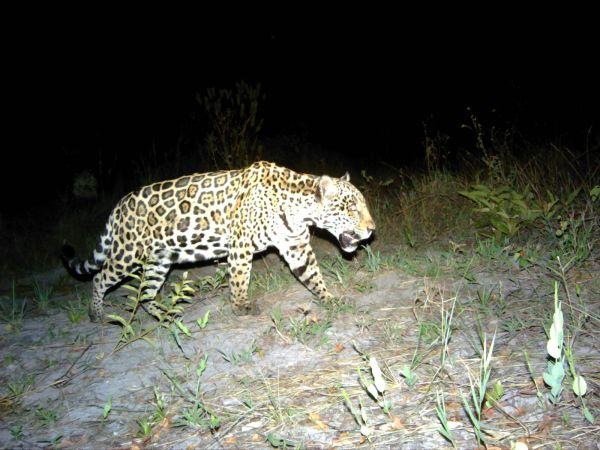
Project information
- Portuguese and English
- http://proonca.org/
- https://www.instagram.com/pro.onca/
- linkedin.com/company/proonca
- q6b, Lot 14 Soares Botelho Avenue Cocalzinho de Goiás GO 72975000 Brazil
Regenar Development Initiative
Regenar Development Initiative emerged from a visioning session during a Regenerative Development & Design course.
The founders were invited to imagine a place in a regenerative future-state. Kiwaatule was envisioned as a lush green urban-corridor with the presence of humans enhancing the wetland and the presence of the wetland enhancing humans. Regenar Development Initiative emerged to offer an alternative to the currently fragmented land-use that has nearly decimated 30+ wetlands in Kampala, Uganda.
Since inception, it has:
- Conducted 11 neighborhood kinship dialogues engaging +300 residents
- Held one-on-one conversations with 17 landowners, with 15 expressing willingness to combine land for collective stewardship
- Generated initial Story-of-Place revealing Kiwaatule’s essence and potential as the “Obuntu Living Drum” reverberating a narrative of bioregional ecosystem restoration and renewal, offering the world a blueprint for regenerative urban futures, spiritual guardianship of place, and community-led ecosystem stewardship.
Key learnings show that while landowners are excited about increased regenerative potential value of land through consolidation, they need assurance about secure ownership and transparent governance. The organisation has also discovered that centering its Indigenous Obuntu philosophy resonates deeply with residents’ aspirations for community reconnection.
Regenar Development Initiative’s plans for the future involve:
- Workshops aligning willing landowners to align to a shared purpose and co-create governance frameworks
- Engagement sessions with Ministry of Lands, Environment Management Authority, and Kampala City Authority to integrate the vision with policy frameworks
- Lay foundation for developing a land-use game exciting and committing landowners, government agencies, academics, and impact investors towards regenerating 230 acres of Kiwaatule before expanding across the ~1000 acres of Nalubaaga Bioregion and eventually across Kampala’s wetland bioregions.
- Community, Food, Landscapes
- 2025
- Intentional Projects
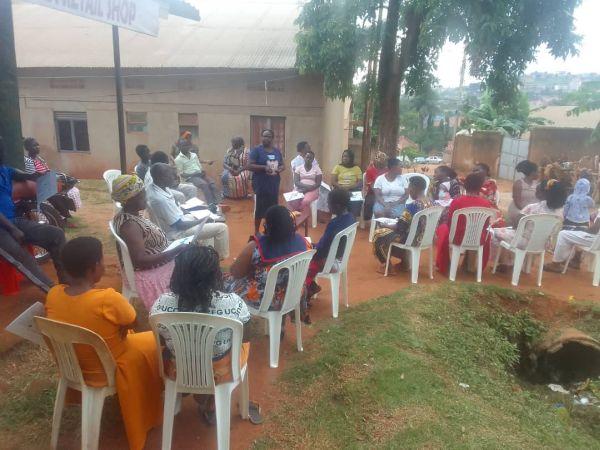
Project information
- English
- https://nalubaaga.eco/
- Kiwatule - Kampala Uganda Central Road Central Region 256 Uganda
Regenera Oiapoque – Bioeconomy in the Amazon Forest
Regenera Oiapoque is a transformative initiative born out of a collaboration between EcoUniversidade and the Xime Lavi Indigenous group.
Rooted in respect for Indigenous knowledge and a commitment to participatory collaboration, this project seeks to forge a regenerative future for the women of Aldeia Manga community, where the Xime Lavi group is based, that are now facing numerous challenges due to climate change.
The project’s approach includes establishing a sustainable system for seed harvesting and replanting, creating a replicable model for regenerative entrepreneurship. In addition, the project is mapping resources within the local biome to ensure sustainable use of forest materials, enabling the women to manage their raw materials responsibly while fostering autonomy and resilience.
The initiative aims to:
- Strengthen local economies
- Preserve Indigenous knowledge
- Regenerate the environment
The project builds on previous initiatives, including the launch of a community-owned store, to scale the women’s enterprise and expand the use of locally sourced seeds. This process not only creates economic opportunities into growing market potential, but also supports cultural revitalization by emphasizing traditional practices in a modern, sustainable context.
By 2029, Regenera Oiapoque envisions Aldeia Manga as a hub of regenerative entrepreneurship, with women-led businesses driving biodiversity protection and economic growth, inspiring similar efforts across the Amazon. This work will demonstrate that by empowering indigenous women as guardians of their cultural and natural heritage, we can build a regenerative and biodiverse future.
- Community, Ecosystems, Landscapes, Networks
- 2025
- Intentional Projects
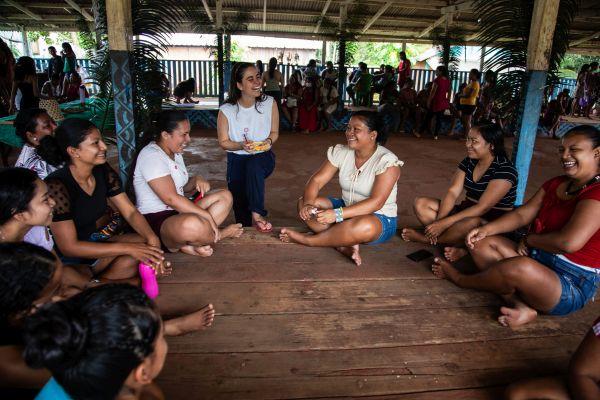
Project information
- Portuguese and Kheol
- https://ecouniversidade.com/
- https://www.linkedin.com/company/ecouni
- +55 11 987878999
- tamojunto@ecouniversidade.com
- Oiapoque, Amazônia